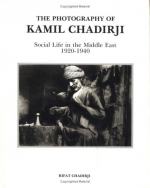|
This section contains 507 words (approx. 2 pages at 300 words per page) |

|
More and more Americans were driving, and some of them caused deadly accidents while drunk. For this and many other publicized reasons, the U.S. Congress, under pressure from an influential temperance movement and other conservative interests, passed the Eighteenth Amendment to the Constitution in 1919, which states: "No person . . . shall manufacture, sell, barter, transport, import, export, deliver, furnish, or possess any intoxicating liquor."
The amendment, known as Prohibition, or the Volstead Act after the Minnesota senator who sponsored it, was doomed from the start. Almost as soon as the law went into effect on January 16, 1920, thousands of people set out to thwart it.
America's wide-open borders were a liquor smuggler's paradise. As Jules Abels explains in In the Time of Silent Cal:
There were 18,700 miles of land and sea to patrol, a hopeless task. Ships loaded with liquor left Vancouver in Canada charted for Mexico and returned empty...
|
This section contains 507 words (approx. 2 pages at 300 words per page) |

|




